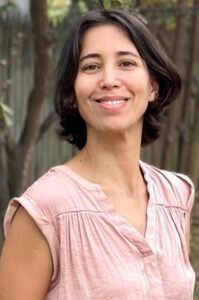VISE Spring Seminar with Roza Bayrak, PhD, 3.21.24
Roza Bayrak, PhD,
Research Assistant Professor
Computer Science
Vanderbilt University

Date: Thursday, March 21, 2024
Time: 11:45 a.m. Lunch, 12:00 p.m. start
Location: Stevenson 5326
Title:
Mining Brain Function from Structure and Peripheral Physiological Data
Abstract:
In functional Magnetic Resonance Imaging (fMRI) data acquisition, it is common to collect various companion data alongside. These auxiliary data are typically underutilized beyond the preprocessing stages, despite their potential to inform and even guide some of our analyses. However, growing evidence suggests that studies of brain function with fMRI can be strongly enriched by including information derived from complementary measures. In this talk, through some of our recent work, we will highlight the relevance and significance of two of these fMRI companion modalities: structural MRI (sMRI) and concurrently collected physiological recordings. First, we will present a recent study delving into advanced machine learning approaches for deriving individualized functional boundaries directly from structural MRI data. This technique can add significant value to clinical practice, where structural MRI is commonly acquired but fMRI scans are rarely included. In the second part of the talk, we will discuss the current issues, controversies, and opportunities that arise from the relationship between peripheral physiological processes and fMRI data. To emphasize the importance of concurrently collected physiological data, we will discuss a recent study where we investigate the heritability and individual variability of physiological signatures, discussing whether they can be individual biomarkers. Finally, we will share our current efforts on disseminating knowledge and tools for physiological data collection, reconstruction and quality assessment, not only within the NEURDY lab but also through global collaborations and knowledge sharing in the community. Overall, this talk points to the importance of including auxiliary modalities in analyses, rather than considering the main data modality in isolation.

